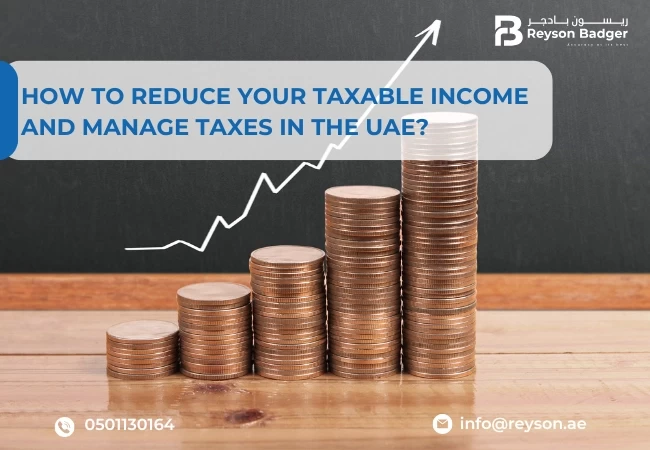

Knowing how taxes work is important for managing your money well. With a little planning, you can make smart choices to improve your financial situation. Tax planning helps you reduce your taxable income and lower your tax bill. In this blog, we’ll share easy tips to help you save more money and make the most of your taxes.
In December 2022, the UAE enacted Federal Decree-Law No. 47 of 2022, establishing the Corporate Tax Law, which became effective for financial years starting on or after June 1, 2023. This law imposes a standard corporate tax rate of 9% on taxable income exceeding AED 375,000. Businesses are required to register with the Federal Tax Authority (FTA), maintain accurate financial records, and submit annual tax returns. Non-compliance can result in penalties, emphasizing the importance of adhering to the established tax regulations. Effective year-end tax strategies are essential for both companies and individuals to optimize their tax obligations. Examining financial operations before year-end assists organizations in identifying opportunities to lower taxable income, such as permissible deductions, credits, and other tactical financial choices. This method guarantees adherence to tax laws, effective financial management, and possible tax reductions.
Key Tax Planning Strategies in UAE
Deductions are specific expenses you can subtract from your taxable income to lower the amount of tax you owe. Here are some common examples:
How to Get It Right?:
The UAE offers several tax breaks to encourage businesses to grow and invest:
Each incentive has its own set of rules, like revenue limits, industry type, or other criteria. Make sure you check if your business fits the requirements.
Transfer pricing is how businesses price goods, services, or assets when trading within their group of companies across different countries. Getting this right is crucial because tax authorities expect these transactions to happen at fair, market-based prices. If the prices don’t reflect market rates, it could lead to penalties or adjustments by tax officials.
Tax treaties help avoid paying tax twice on the same income. These agreements are made between countries to make international business easier and more affordable. If your business earns money in multiple countries, these treaties can lower taxes, such as withholding tax or even exempting certain types of income from tax.
Implementing these strategies requires careful planning and, often, professional advice to ensure compliance and optimize tax benefits.
Proactive tax planning is key to saving money, improving cash flow, and staying competitive. You can reduce your taxable income and maximize savings by identifying deductions, exemptions, and incentives.
At Reyson Badger, we specialize in helping businesses and individuals navigate complex tax rules. Our experts provide tailored advice to ensure compliance while unlocking opportunities to save. Let us help you plan smarter and focus on confidently achieving your goals.